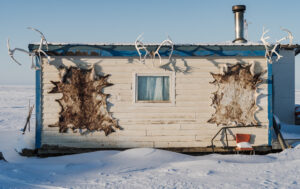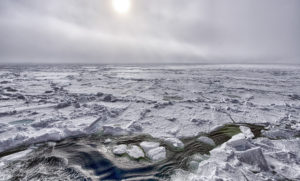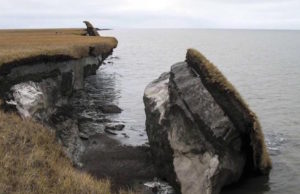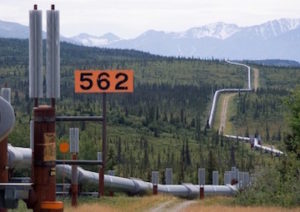The Globe Continues to Warm
Scientists have noted alarming trends in the arctic that continue to indicate a rise in global temperature, which could ultimately lead to catastrophe: "There have been regional warming periods before. Now we're seeing arctic-wide changes."Scientists have noted alarming trends in the arctic that continue to indicate a rise in global temperature, which could ultimately lead to catastrophe: “There have been regional warming periods before. Now we’re seeing arctic-wide changes.”
Your support matters…AP:
For the past five years, it was at least 1.8 degrees Fahrenheit above average over the Arctic over the entire year, said James Overland, an oceanographer at the Pacific Marine Environmental Lab in Seattle.
The new “State of the Arctic” analysis, released by the National Oceanic and Atmospheric Administration, also reports an increase in northward movement of warmer water through the Bering Strait in 2001-2004. This may have contributed to a continuing reduction of sea ice.
During that time, there were record lows in sea ice coverage in the region, Overland said. This year there was more normal coverage in the Bering area but a record low on the Atlantic side of the arctic.
In the past when such a shift occurred, there would have been no net loss of ice overall, just a change in where there was a smaller amount. Now, however, there is both the shift and an overall net loss of ice, he said.
Indeed, the report said arctic sea ice coverage this past March was the lowest in winter since measurements by satellite began in the early 1970s.
Independent journalism is under threat and overshadowed by heavily funded mainstream media.
You can help level the playing field. Become a member.
Your tax-deductible contribution keeps us digging beneath the headlines to give you thought-provoking, investigative reporting and analysis that unearths what's really happening- without compromise.
Give today to support our courageous, independent journalists.






You need to be a supporter to comment.
There are currently no responses to this article.
Be the first to respond.